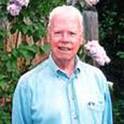
All religions, as well as much fiction and many philosophies, employ a language to create the realities we want and to open the wonders elsewhere—that is, to go beyond a representation of the here and now to what may lie beyond the here and now. Names for such a "place" include "utopia," "the transcendent," "heaven," "paradise," nirvana," "peace" and the like and are embodied in the scripture of all religions and in secular works like Plato's Republic, Sir Thomas More's Utopia and Chaucer's Canterbury Tales. As a linguistic artifact, the wonders elsewhere appear chiefly by means of modal verbs, "should," "ought," "could" and the like and with the creation of things that do not exist (Sherlock Holmes, Beowulf, the ghost of Hamlet's father, Goldilocks) but objects can still talk about.
Available at: http://works.bepress.com/gene_washington/163/
